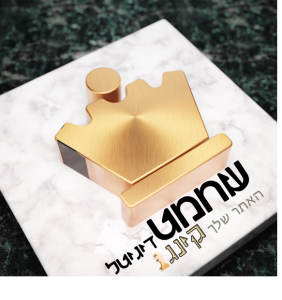Korach-The Mystery of the Missing On Ben Pelet
The Mystery of the Missing On Ben Pelet
“Now Korah, the son of Yizhar, son of Kehat, the son of Levi, and Datan and Aviram, the sons of Eliav, and On, the son of Pelet, sons of Reuven, took men. And they rose up before Moshe, with certain of the People of Israel, two hundred and fifty princes of the assembly, regularly summoned to the congregation, men of renown. (Bamidbar 16:1-2)
The Mystery of the Missing On Ben Pelet
In this week’s Parsha we hear about how the earth opened its mouth and swallowed up Korah, his family and all of his supporters. The cause of this calamity was that Korah, Moshe’s and Aharon’s cousin, provoked more than 250 people to defy the authority of Moshe and the appointment of Aaron as the Cohen Gadol (High Priest).
Of these leaders, one is mentioned only in this first verse and he is never mentioned again in the Torah: On, the son of Pelet. While the text returns to the other leaders and their respective inglorious fates: “And the Eternal spoke unto Moshe, saying, speak unto the congregation, saying, Get you up from about the dwelling of Korah, Datan and Aviram.” (Bamidbar 16:23-24) On the son of Pelet is not included among the people who are punished with Korah the text tells us nothing about On’s end How did he escape sharing their fate”?
The Talmud and Midrash relate a tradition that On’s wife saved him from Korach’s scheming against Moshe.
The wisdom of a wife
In Gemara Sanhedrin 109b we find the following account of what happened to On ben Pelet: Rav said: On, the son of Pelet, was saved by his wife. She said she to him, ‘What matters it to you? Whether the one [Moshe] remains master or the other [Korah] becomes master, you will be just a disciple.’ He answered her ‘But what can I do? I have taken part in their counsel, and I swore allegiance to them.’ She said, ‘I know that they are all a holy community, as it is written.: ” all the congregation are holy”. (Bamidbar 16:3). She proceeded, ‘Sit here, and I will save you.’ She served him wine to drink. He got drunk and she laid him down on his bed within [the tent]. Then she sat down at the door of the entrance to the tent and loosened her hair. Whoever came [to summon him] saw her and retreated [as they didn’t want to be exposed to a married woman’s uncovered hair]. In the meantime Korah and his supporters were swallowed up.”
The same Gemara continues to explain what made Korah, who was a Levi and a talmid chacham (learned person), go against the decree of God and thereby cause himself and his supporters to lose both this world and the next.
” Meanwhile, Korah’s wife joined them [the rebels] and said to him [Korah], ‘See what Moshe has done. He himself has become king; his brother he appointed High Priest; his brother’s sons he has made the vice High Priests. When people bring truma, (the priestly tithe), he decrees, ‘Let it be for the priest’; When they bring maaser (Levitical tithes), which belongs to you [i.e. to the Levite], he orders, “give one-tenth of it to the Cohen”’. Moreover, because he envies you, he has had your hair cut off, and makes sport of you as though you were dirt; for he was jealous of your hair.’
.Korah answered, “But he has also shaven his own hair.” His wife replied, “It is all for his own advantage. He thinks to himself:” Let me die with the Plishtim….”(Shoftim 16:30)”[ The fact that he himself shaved as well was irrelevant; since he was willing to forgo his own honor, as long as could make everyone else look foolish. In the same way Shimshon was willing to die as long as he could kill the Plishtim as well.] … Thus it is written, (Mishlei 14:1) “Every wise woman builds her house” — this refers to the wife of On, the son of Pelet; “but the foolish plucks it down with her hands” — implying Korah’s wife. (Sanhedrin 109b-110a) (See Midrash Rabbah – Bamidbar 18:20).
It All Depends on the Woman
The Gemara depicts the greatness of womankind by contrasting the above two influential women. One incited the downfall of Korah and his assembly. The other was able to rescue her husband from this evil council. What differentiated the ways of these two women whose influence on their husband had such tremendous impact on the political and spiritual fate of the entire Jewish nation?
A Man is Hungry for the Respect of His Wife:
A man looks for, the respect, approval and recognition of his wife. On’s wife was interested in building him up. She expressed concern for her husband’s esteem when she asked, “What are you going to get out of participating in Korach’s rebellion?” On’s wife was able to persuade her husband by caring about his respect, and demonstrating that he had nothing to gain by joining Korah. She gave him a way out of his predicament a way of getting down from the high branch upon which he had put himself.
Korah’s wife, on the other hand, related to her husband in precisely the opposite way. Instead of building him up, she put him down and degraded him, by scorning him and making fun of the way he looked, after having complied with Moshe’s command to shave all the hair of his body. It was thus Korah’s attempt to regain the respect of his wife that incited him to rebel against the authority of Moshe. She pushed him into a corner giving him no chance to change his mind. He wanted to save face and show his wife that he was enough of a man to stand up against Moshe and prevent being made a fool in her eyes
Seeing the Good
While Korah’s wife was critical and always looked for the negative, the wife of On was able to save her husband by looking for the positive element, even within her opponent. The selfsame statement: “The entire congregation is holy” used by Korah to challenge the authority of Moshe, is turned around by On’s wife to acknowledge the virtuous component of Korah and his congregation. On’s wife did not force her husband to take sides and did not make him declare that he was back-tracking. She agreed that perhaps Korah was right in that the entire congregation is holy. On did not have to back down from his principles. She allowed him to save face. She explained that the whole argument was irrelevant to him, for he had nothing to gain and he was number one -she cared about him. If she was able to perceive the good in those from whom she wanted to protect her husband, how much more can we assume that she constantly looked for the good in her husband. It is this ability to always look for the positive, and to build up her husband, that the Gemara considers to be “The wisdom of women [which] builds her house”

 שחמט דיגיטל
שחמט דיגיטל